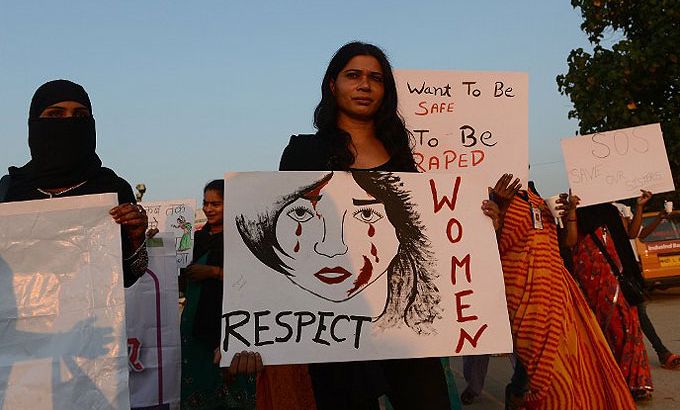India rape victim ‘takes turn for worse’
Doctors from Singapore hospital say 23-year-old’s condition has deteriorated with “signs of severe organ failure”.

The medical condition of an Indian gang-rape victim has “taken a turn for the worse” with “signs of severe organ failure”, the Singapore hospital treating her has said in a statement.
“Her vital signs are deteriorating with signs of severe organ failure,” Kelvin Loh, chief executive officer of Mount Elizabeth Hospital where she was airlifted to from India, said on Friday.
Loh said the hospital had informed the unnamed victim’s family members of her worsening condition and “they are currently by her side to encourage and comfort her”.
“As of 9pm local time (13:00 GMT) on Dec 28, the patient’s condition has taken a turn for the worse,” he said.
“This is despite doctors fighting for her life including putting her on maximum artificial ventilation support, optimal antibiotic doses as well as stimulants which maximise her body’s capability to fight infections.”
The girl was described by Singapore doctors earlier on Friday as “struggling against the odds, and fighting for her life” after she was found with a lung infection and brain injuries in addition to suffering a cardiac arrest previously.
She had also been diagnosed with severe intestinal injuries as a result of being attacked with an iron bar during the assault in India’s capital New Delhi on December 16.
On Thursday night, the hospital revealed that the woman, who is a student in Delhi, had undergone “three abdominal surgeries and experienced a cardiac arrest in India” as it gave the first detailed rundown of her condition.
The woman had been treated in Delhi’s Safdarjung Hospital since she was thrown off a bus in the capital after six men took turns to rape her and assault with an iron bar in the moving vehicle, leaving her with intestinal injuries.
The government has ordered an official inquiry into the gang-rape and promised new laws to protect women as well as stiffer penalties for the worst sex crimes.
It has also announced plans to post the photos, names and addresses of convicted rapists on official websites to publicly shame them. The campaign will begin in Delhi, which has been dubbed India’s “rape capital”.
Protests continue
Several thousand riot police were again on duty on Thursday to prevent a group of around 500 people, mostly women, from marching on the presidential palace.
“We want justice,” the protesters chanted, with some demanding the sacking of the Delhi police chief for authorising the use of teargas and water cannon at previous protests.
 |
| Son of India’s president had to apologise after he described some of the protesters as “dented and painted” women [Reuters] |
Activists were stopped by police in riot gear armed with tear gas and water cannons to hold them back.
“We will win back our freedom!” the protesters, mostly university students, shouted as they pushed against barricades on a road leading to the city’s landmark monument.
The country has been rocked by a wave of protests since the attack, including one in Delhi on Thursday when thousands, mainly girls and youth tried to march towards the main government building demanding end to violence against women.
Meanwhile, President Pranab Mukherjee’s son, Abhijit, who is also a lawmaker for the ruling Congress Party, landed himself in trouble for describing some of the protesters as “dented and painted” women – a phrase used by mechanics who mask rust on used cars with liberal coats of paint.
Abhijit, who came in for widespread condemnation for his sexist remark, apologised saying “my intention was not to hurt anyone”.
Official figures show that 228,650 of the total 256,329 violent crimes recorded last year were against women, with the number of rapes in the capital rising 17 percent to 661 this year.
